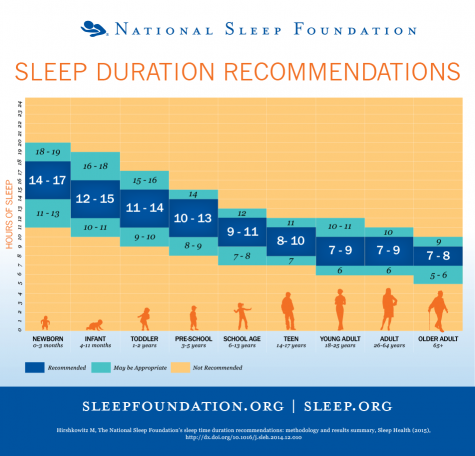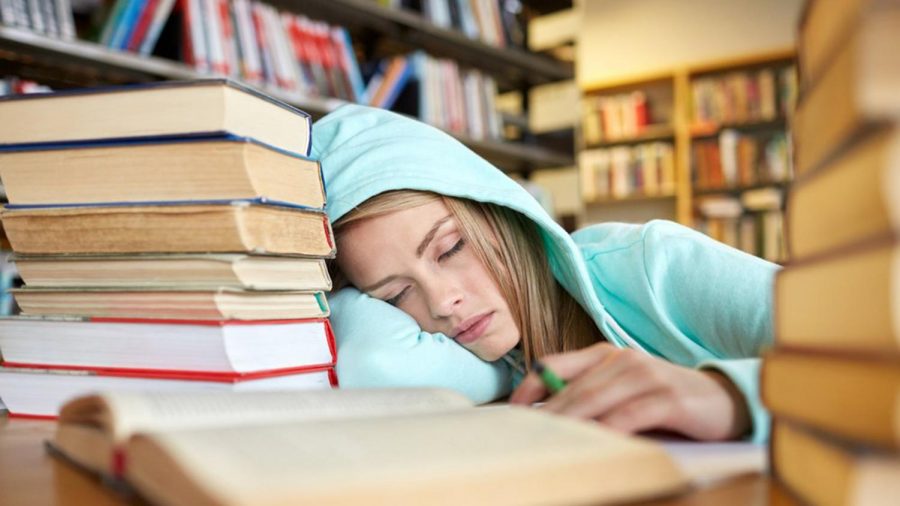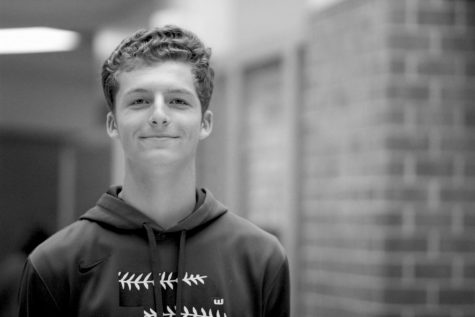The Sleep Deprived Youth
A deeper look into how sleep deprivation affects students
November 20, 2018

High school students struggle to get the minimum recommendation of eight hours of sleep every night because of homework, extracurricular activities and spending time with family and friends. This lack of sleep causes poor attentiveness in morning classes along with raising the risks of health issues.
According to The Journal of Adolescent Health, only 8% of high school students in the US get the recommended amount of sleep every night. The vast majority of high school students are missing vital hours of sleep, which puts them at a higher risk for diabetes, mental health issues and obesity.
As hard as it is for the average high schooler to get eight hours of sleep, it is even more difficult for student athletes that have morning workouts to get even close to that recommended amount. Since classes start at 8 a.m. for most high schools, the workouts begin as early as 6 a.m. Even with activities after school, athletes struggle to get to bed on time to prepare themselves for the next day.
“Sports have made it very difficult to get a full eight hours of sleep,” junior Tristan Gomes said. “Especially when I have practice right after school followed by homework and spending time with my family. I make school a priority so I usually have to sacrifice hours of sleep for studying and homework time.”
This lack of Z’s is caused not only from morning workouts, but also after school activities and can put the athlete’s hours of sleep behind the recommended amount which also has a direct correlation to risk of injury.
Athletes know the struggle of getting enough rest all too well. When prioritizing school, activities, family time and sleep, sleep is usually one of the first things to go.
Students with jobs also know the hardships of getting schoolwork done after their shift and still trying to get to bed at a decent time.
“On a normal school night I work around five or six hours,” senior Natalee Noble said. “It leads to me having to stay up late working on homework once I get off. Staying focused can be a challenge since I am usually tired after work.”
Eight percent of high school students get the recommended eight hours of sleep every night. That means roughly two to three students per classroom slept a healthy amount and are prepared fully for the day.
As you walk through the Millard West halls right before the bell rings, numerous students have droopy eyes and a caffeine drink in their hand. High schoolers counter this lack of sleep with unhealthy caffeinated drinks like Kickstart, Red Bull and Bang. The sugary drinks give them a short burst of energy. Despite this temporary boost, highly caffeinated drinks can increase heart rate and blood pressure along with unhealthy heart rhythm disturbances, according to The National Center for Complementary and Integrative Health.
“Some mornings when I need energy I drink either a Bang or a Red Bull,” sophomore Grace Schiemann said. “These drinks really help me stay awake in morning classes and get me through the school day.”
Every hour of sleep the teenage body misses out on can slowly result in vital growth and development being cut short due to schoolwork, activities, or working a job. During the rollercoaster years of being a teenager, sleeping is one of the best things these students can do for their health.







